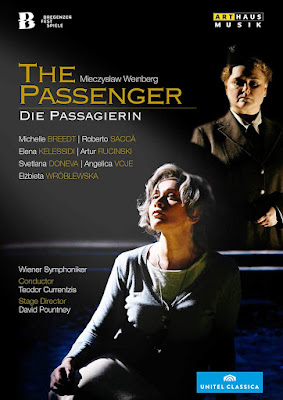It had been a while since I'd seen an opera in a new language, so how about Farsi? "But wait," you might say, "your habit is to refer to the English-language names of languages. Unless you're going to start talking about Française and Italiano, shouldn't you call it 'Persian?'" Well...perhaps. But you know what they say about consistency. To be, "Persian" sounds vaguely nineteenth-century-colonialist, whether that's fair or not. Besides, there are a lot of non-Indo-European languages that don't have distinct English names, so if I should see an opera in Urdu or Pashto--if such things exist--then it would feel inconsistent. Look, the point is, I'm calling it "Farsi," and neither you nor the gods of heaven and earth can stop me. However--because, as I say, consistency sucks--I will continue calling the Indonesian lingua franca "Indonesian." No, it's actually not that impressive that you know that "Bahasa" means "language." Knock it off.
Yup, so this opera is about Rumi. Boy, who could've seen that one coming? It does presuppose a certain amount of foreknowledge about his life, so you should probably at least look through his wikipedia page before watching. The libretto is largely (entirely? I'm not sure) from his poetry, so you shouldn't expect much plot. It starts with the Mongols invading Iran, which seems completely oddly disconnected from anything else that happens, until you read that this invasion led to his family moving. It still feels odd in the context, though. Then, in a series of short scenes, we see Rumi in conversation with his father, his wife, and his mentor Shams Tabrizi. He lives. He gets old. And that's about it as far as plot goes.
It uses an Iranian musical system called Dastgah, I'm told. I don't really know what that is, but given the opportunity, I would love to take a class about non-Western music. It sounds in the same general area as a lot of Asian music I've heard. I hope, but not very hopefully, that that's not racist. There are some Western elements, but in general this isn't what you probably think of when you think of opera. I'd place it with those Azerbaijani operas I watched. Sometimes a little dull, but sometimes it gets into a groove and becomes really mesmerizing.
This production is done with puppets; there's nothing in the libretto that would compel you to go in that direction, but the librettist is a puppet theatre director, so you'd expect it to be. And it's really well-done, with a lot of puppets on stage at once moving in very lifelike manners. You've got your dervishes whirling and everything. I do wish the subtitles had maybe been proofread by a native English speaker--a lot of this material is inevitably going to be pretty foreign to doofy Westerners like me, so we need all the help we can get--but generally, I found this educational and entertaining.




